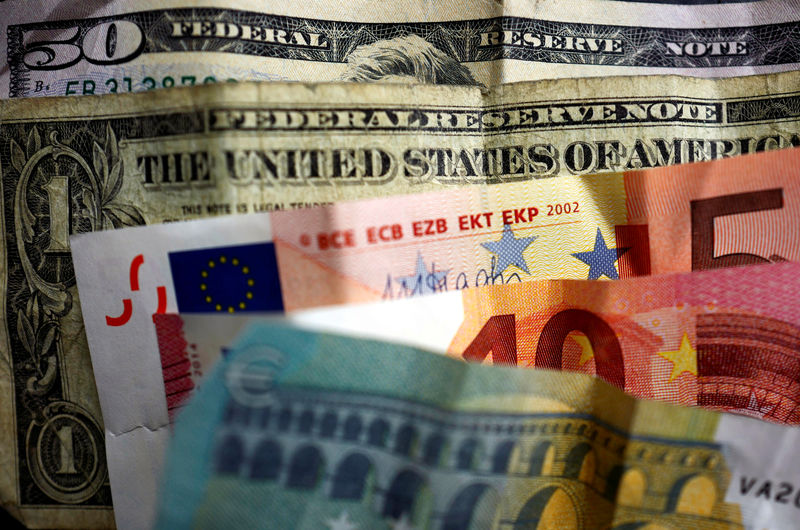Investing.com – The U.S. dollar fell on Monday, consolidating after rising to a nearly eight-week high last week, while the euro rose despite weak German business sentiment.
At 05:25 ET (09:25 GMT), the Dollar Index, which tracks the greenback against a basket of six other currencies, was trading 0.2% lower at 105.235, after reaching a high of 105.91 last week .
Dollar looks to PCE data for guidance
The US currency got a boost last week after the release of stronger-than-expected data, with the resilient US economy potentially creating more room for the Federal Reserve to keep interest rates high.
Traders have booked some of these gains early in the new week as the focus turns to the release of price index data.
Fed officials have called for more data showing a slowdown in inflation before agreeing to a rate cut, and Friday’s reading from the Fed’s preferred inflation gauge will likely play a role in the outlook for interest rates.
Economists expect the index’s annual growth rate to slow to 2.6% in May. A soft reading is likely to reinforce bets on a rate cut as early as September, which are currently valued at a 65% prospect according to CME’s FedWatch tool.
The euro is recovering despite a dip in the Ifo value
rose 0.2% to 1.0718, recovering from recent losses despite German business morale unexpectedly falling in June.
The Ifo Institute said the figure fell to 88.6 in June from 89.3 in May, compared with expectations of a reading of 89.7.
“The German economy is struggling to overcome stagnation,” Ifo President Clemens Fuest said.
The single currency has fallen more than 1% this month after the right performed well in the European Parliament elections earlier in June, prompting French President Emmanuel Macron to call early elections.
rose 0.1% to 1.2659, with sterling stabilizing after falling near a five-week low in the wake of the Bank of England’s latest interest rate.
The BoE kept rates unchanged, but some policymakers said the decision not to cut was “balanced,” raising expectations that policymakers will agree to a cut at their next meeting in early August.
“Markets remain undecided on an action in August (14 basis points priced in) and in our view are also still too conservative on total easing this year at 47 basis points versus our call for 75 basis points,” analysts at ING said in a note.
“Our dovish view of the BoE means a bearish call on the pound this summer. We could also see a negative spillover into the GBP following the UK election (4 July), where a landslide victory for Labor is largely expected – but perhaps a good result from the populist, hard-Brexiteer Reform UK party could some market jitters.”
Yen falls, causing intervention talk
In Asia, it traded 0.1% lower at 159.68, retreating after the pair rose as high as 159.94 in early trading on Monday, the highest since April 29 when it hit a 34-year high on 160.245, which led to Japanese authorities spending roughly 9.8 trillion yen to support the currency.
The yen’s recent weakness led to warnings from several major Japanese officials about more intervention, with the country’s top currency diplomat, Masato Kanda, saying the government would “intervene 24 hours a day if necessary.”
rose slightly to 7.2618 and traded within a very narrow range, with the yuan near a seven-month low, hurt by concerns about weakness in the world’s second-largest economy.


